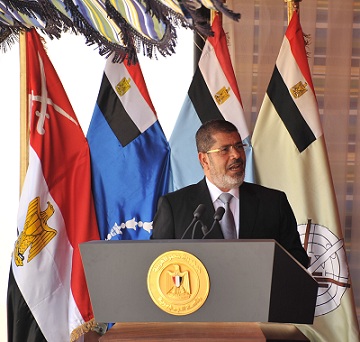Criticism by high-figure media, press personnel, and concerned entities over the press and media laws continues, while Parliament confirms considering all disputed articles for ensuring the emergence of constitutional laws.
In a report released by the National Council for Human Rights (NCHR) on Sunday, it made some remarks over the laws, according to privately owned newspaper Al-Shorouk.
For the articles imposing punishments and criminalising some acts, the council has requested that Parliament use accurate phrases in its descriptions for violations and crimes in order to achieve clarity.
The law stipulated in Article 4 that press institutions, media outlets, and news websites shall not broadcast or publish any article or declaration with content contradictory to the Constitution or code of professional conduct. In this regard, the council stated that the code of professional conduct is based on voluntary commitments declared by press and media institutions, and in case of violation, the issue should be dealt with the journalist and his institutions, not the courts.
“The council does not believe that the criminalisation of such practices, which are prohibited by press and media codes of conduct, could serve freedom of press,” the report said.
For Article 5, the council said it has determined cases that could infringe the licence or permit for the establishment of any institutions or even allow them to continue to operate, explaining that the currently used statements are not accurate enough and are very difficult to define precisely, “thus broadening the targeting of journalistic practices and seriously harming opinion and expression.”
Regarding Article 9, which is concerned with the circulation of information, the council said that there are no certain criteria determining what could be a violation of the requirements of national security and defence of the homeland.
Moreover, it further criticised Article 19, which allows the Supreme Media Council to stop or block any personal website, blog, or social media account that has a high number of followers—exceeding 5,000—in case it commits a specific offence or threatens the freedom of opinion and expression, saying that this extends the Supreme Media Council’s authority to attack “freedom of personal opinion,” which violates the Constitution.
In a similar context, Osama Sharshar, a member of Parliament’s media and culture committee, expressed solidarity for remarks made by the Press Syndicate regarding the laws. According to the MP, he was the only member opposing the law for including a number of unconstitutional articles and restrictions on media and press personnel.
“I support, as a journalist, all the steps and legal measures taken by the Press Syndicate to preserve the gains of the press community and to prevent the domination or control of a particular body or group against journalism,” Sharshar said.
Members of the Press Syndicate submitted some concerns regarding the law to Parliament two weeks ago.
Sharshar also stressed that he would not accept in any way a law that has no restrictions on journalists or media personnel in any way. The law creates a form of guardianship for the three press and media bodies on the work of the press and media, he also said, adding that there are some attempts by some figures to market the bill as “the best law”, and these attempts are “useless.”
Similarly, on Sunday, the State Council said in a report that the law includes some unconstitutional articles that should be addressed.
In response to this, the head of the media and culture committee, Osama Heikal, said in a statement that the State Council made comments, not accusations against the new media and press laws, noting that Parliament has already sent the laws to the State Council following preliminary approval for legal review in order to make sure that all the articles are constitutional.
“It is normal that a law of this size could include comments; this is not a defect, and we will not allow the approval of a law that is not equivalent with the Constitution,” Heikal added.
Nader Mostafa, the secretary general of the media and culture committee, said that the new laws regulating work of press and media are consistent with international human rights standards and general law.
However, the MP also praised the validity of the laws, saying during his televised interview that the committee is currently looking into formulating the disputed articles.
He noted that the laws have gone through several stages of discussion via high-figure media personnel since being sent to Parliament in 2016 by the government, adding that the committee has also made several hearing sessions over the laws and had received the views of eight press institutions.


